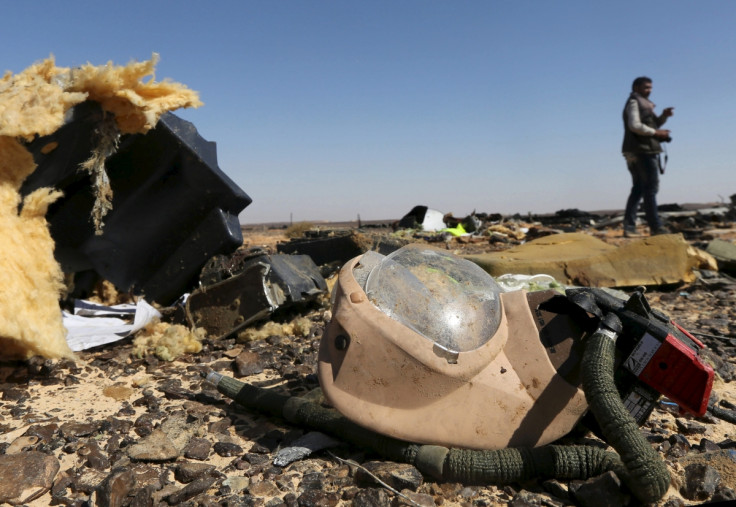Russian plane crash: Egyptian investigators '90% sure' aircraft downed by bomb

Egyptian investigators assessing the wreckage of the Russian plane crash in the Sinai Peninsula have said they are "90 per cent sure" a bomb was heard exploding just before a cockpit recording cut off. The Metrojet Flight KGL9268 came down 23 minutes into a flight from the tourist hotspot of Sharm el-Sheik to St Petersburg – killing all 224 passengers and crew.
Just hours after the tragedy, the Egyptian branch of Islamic State (IS) released a statement claiming they had brought down the plane in retaliation for Russia's military intervention in Syria. Further reports suggest that US intelligence intercepted celebratory "chatter" between jihadists in Sinai and Raqqa.
Both U.S. and Egyptian officials have expressed their belief in the past few days that the jet came apart in mid-air, with the debris from the aircraft being strewn over a 20 square mile area of desert. One theory is that the tail of the aircraft may have been violently blown off by an explosive device placed in the fuselage, cutting recordings made in the cockpit being sent to black boxes at the rear of the plane. Black box recorders do not have their own battery power supply, so any recordings would have been halted instantly.
"The indications and analysis so far of the sound on the black box indicate it was a bomb," said an Egyptian investigation team member to Reuters, who asked not to be named. "We are 90 per cent sure it was a bomb."
If Islamic State (IS) was to have carried out the attack this would mark a significant change in strategy for the jihadists, who want to establish a caliphate in the Middle East. But improvised bombs planted on aircrafts, then detonated by timers, have caused a number of terrorist atrocities including the Boeing 747 which came down over Lockerbie, Scotland, in 1988.
Lead investigator into the crash Ayman al-Muqaddam announced yesterday (7 November) that the Airbus A321 appeared to have dismantled in mid-air while it was being flown on auto-pilot. But did not elaborate as to how the plane may have come apart.
There are approximately 3,000 Britons waiting to return home from Egypt with the UK government sending 70 experts to analyse security measures at Sharm al-Sheikh airport. Foreign Secretary Philip Hammond said: "If this turns out to be a device planted by an ISIL operative or by somebody inspired by ISIL, then clearly we will have to look again at the level of security we expect to see in airports in areas where ISIL is active," to the BBC.
© Copyright IBTimes 2025. All rights reserved.






















